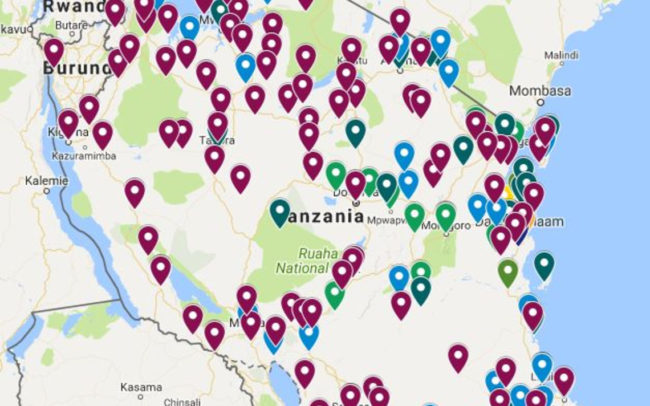Mapping CCBRT’s Impact: Why Do Patients Come From All Over Tanzania?

Originally posted on the CCBRT blog
Last year, CCBRT’s Ophthalmology Department provided more than 70,500 consultations and conducted more than 7,500 surgeries in the main hospital in Dar es Salaam. As you can see on the maps below, the patients who received these services came from all over Tanzania – and even beyond, from other countries in East Africa.
Why do patients come from so far to get eye services at CCBRT?
Since CCBRT first opened in 2001, the hospital has built a nationwide reputation as a provider of high quality eye services. Although options for eye services are gradually becoming more widespread, Tanzania still faces a serious shortage of eyecare professionals: the country currently has only 0.8 ophthalmologists for every one million people.
From the U.S., Kupona is proud to support efforts that increase access to high quality eye health services through fund and awareness raising, and through collaborations with esteemed partners like Lavelle Fund for the Blind. This partnership will support critical financial and technical investments over the next two years, enabling the CCBRT team to scale the provision of low cost, high quality services to people living with blindness or visual impairment in Tanzania, and to sustain these critical services for future generations.
At CCBRT, the Ophthalmology Department team has decades of experience, including team members like Dr Cyprian Ntomoka, Eye Department Head and Vice President of the Tanzania Ophthalmology Society; Dr Sonia Vaitha, one of only three ophthalmologists in the country specializing in treating children; and Rehema Semindu, Tanzania’s only prosthetic eye technician. Each exemplifies the dedication and specialized knowledge of the department’s 3 specialist ophthalmologists, 2 ophthalmologists, 7 Medical Doctors and Assistant Medical Officers, 5 optometrists, one low vision therapist, and 50 nurses.
This unique expertise is why doctors around Tanzania refer their eye patients to CCBRT, and why people travel from places as far away as Mbeya and Mwanza to seek treatment in our main hospital.
We are proud of the work the Ophthalmology Department does, and we are committed to leveraging in-house expertise as we continue to fight against avoidable blindness in Tanzania.



